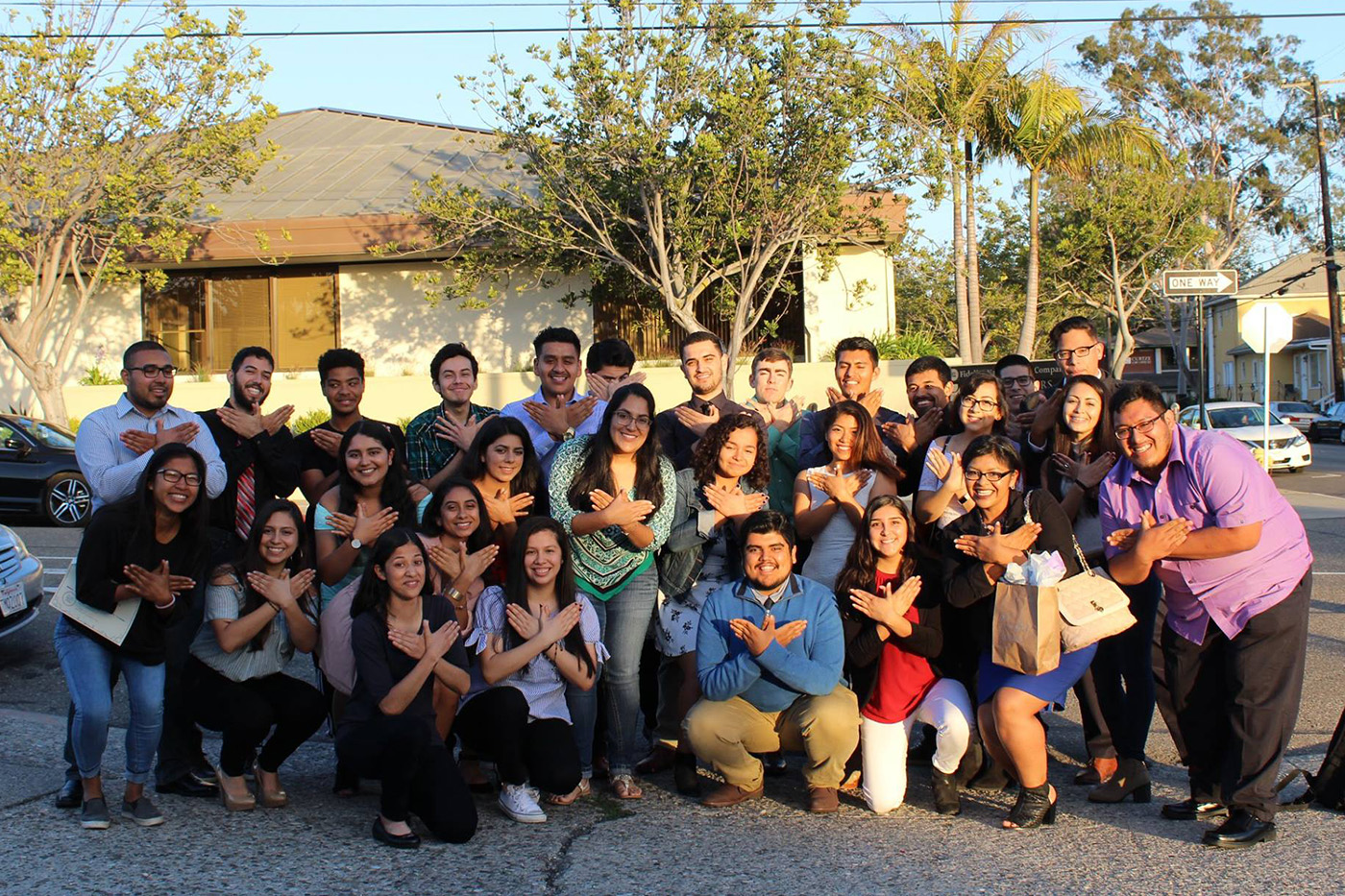For the first time in 50 years, students proposed that the nation-wide student organization Movimiento Estudiantil Chicanx de Aztlán (MEChA), known as MEXA at Cal Poly, change its name nationally.
The proposal to change the name from “Movimiento Estudiantil Chicanx de Aztlán” to “Movimiento Estudiantil” was originally motioned by the University of Oregon chapter at a national conference in April, but was ultimately not approved by the national board because the chapter did not have an official amendment document prepared in advance, which goes against the organization’s constitution on creating national changes.
However, the motion did spark conversation about what MEChA is and how it has evolved over the decades to be more inclusive.
What is MEChA?
MEChA, or MEXA, is an acronym for Movimiento Estudiantil Chicanx de Aztlán, or Chicanx Student Movement of Aztlán, and was founded at the University of California Santa Barbara (UCSB) at the end of the 1960s as a way to unite Chicanos and encourage higher education.
In the 1960s, second- and third-generation Mexican Americans began to identify as Chicano and Chicana. The Chicanx identity not only separated this generation from those before them, but also held social and political significance as it coincided with the civil rights and social justice movements.
In the same way that groups like The Black Panther Party and others fought to create opportunity and equality for their communities, the Chicano movement began as a way of resilience and rejection of structures and roles that had kept generations before them suppressed, according to Vibe.
An important part of the Chicano movement is also the concept of Aztlán, the mythical Aztec homeland. Aztlán includes the Southwest United States and supports the movement’s argument that Chicanos cannot be immigrants because their homeland is in the U.S.
In 1969 MEChA arose from the Chicano movement, with a focus on education being a major component in the fight for social justice and equality. Students, activists and professors came together at UCSB to draft the Plan de Santa Barbara, which became a catalyst for Chicano studies and ethnic studies at universities across the country.
While the name MEChA holds significance, it also evokes memories of sexism and exclusion tied to the history of the movement, according to Remezcla, a media brand for young Latinos.
“Now we have a required position called the Gender and Sexuality Chair,” sociology junior and co-chair of MEChA’s National Board Gabriela Guillén said. “It is in our history that women and queer, trans people of color have consistently been pushed out because a lot of times people chose to weaponize race over actually hearing their own voices.”
Why the name change matters
The proposal to drop the words “Aztlán” and “Chicanx” was a way to not only be more inclusive of other people in the Latinx community who might not identify with Aztec history, but also to be more inclusive of groups who felt excluded from the movement in the past.
“We dealt with a lot of problems, not only in MEXA, but as a nation,” history senior and MEXA member Brian Gounod said. “While we are still dealing with those problems, now there is definitely more of an acknowledgement of those kind of issues — sexism, racism, colonialism … That is really shown by the proposal of the name change that our club is trying to sort of evolve going into the future and be more inclusive to all peoples.”
However, given the history and significance of the name, not everyone was on board with changing it.
“To change the name means a lot, because it kind of re-identifies the organization that you are part of as serving one group less, one group more,” Gounod said. “There are a lot of people who are passionate about the name and what that sort of signifies.”
MEXA at Cal Poly
At a university where Hispanic and Latino students make up about 17 percent of the population, MEXA also provides a community for students of color at Cal Poly.
“It is definitely a culture shock coming here,” Gounod said. “MEXA in many ways provides a family for a lot of folks.”
MEXA also offers mentorship programs, academic support and community outreach, Guillén said.
“[MEXA’s] main purpose is to do student retention, and I think it holds true to those values,” Guillén said. “I feel that MEXA provides that space that a lot of students do not get in other places and other clubs.”
But Gounod said there has been misunderstanding on campus surrounding what exactly MEXA is and what its purpose is.
“We are activists who believe in cultural expression, cultural changes,” Gounod said. “In some ways we are radical in terms of challenging what Cal Poly, what the broader university campus, sort of offers … It is important to understand that we are a student organization, who is sort of rooted in activism, but we are not as radical as some people would say.”
Moving forward, Guillén said she hopes MEXA continues to be a resource and educational tool for marginalized students, but also continues to address difficult issues in the organization and political climate.
“We still do need to do the work to educate ourselves all the time, every single day,” Guillén said. “I hope the chapters do force their members to have these tough conversations.”

